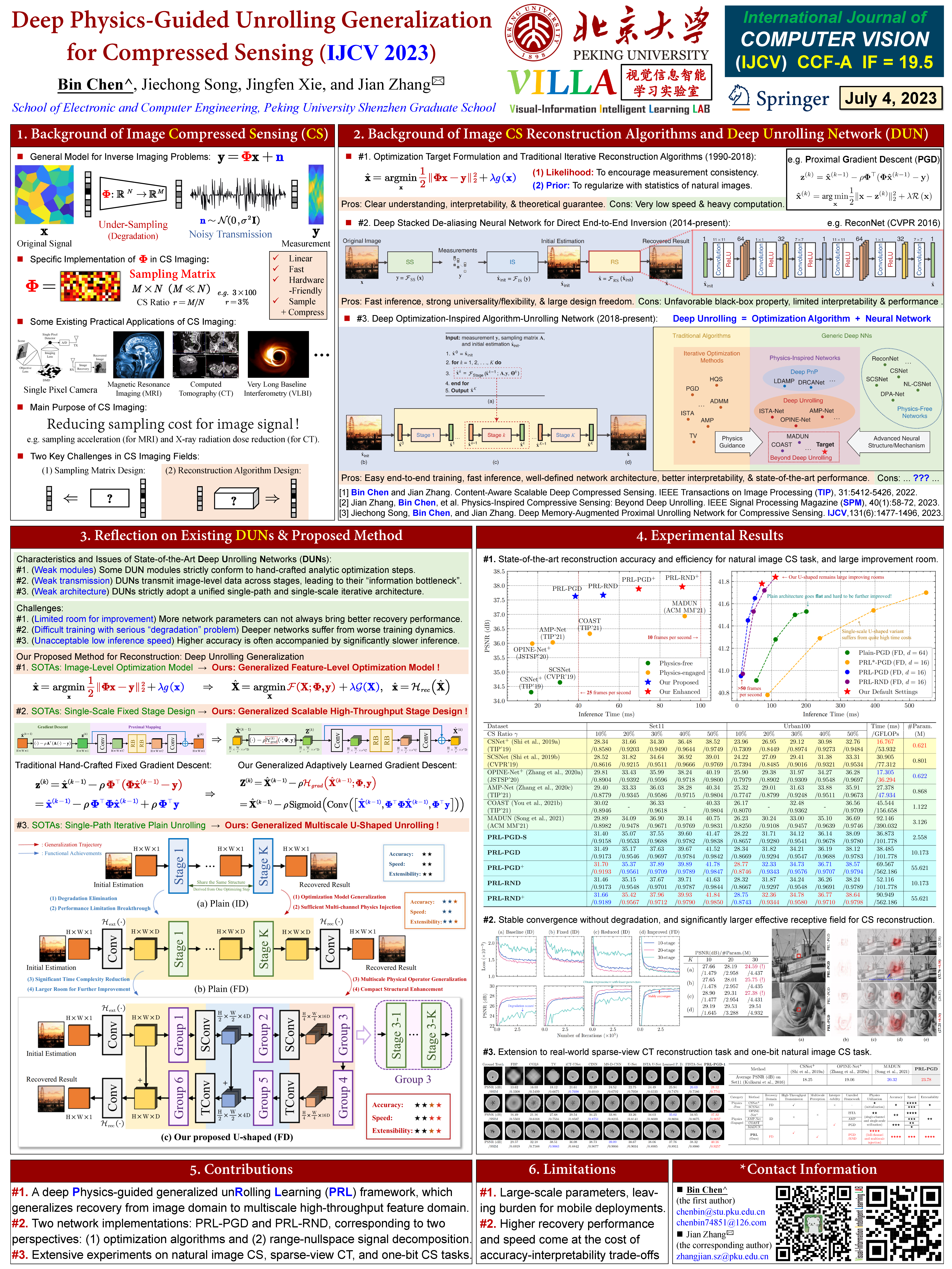Bin Chen, Jiechong Song, Jingfen Xie, and Jian Zhang
School of Electronic and Computer Engineering, Peking University Shenzhen Graduate School, Shenzhen, China.
Accepted for publication in International Journal of Computer Vision (IJCV).
By absorbing the merits of both the model- and data-driven methods, deep physics-engaged learning scheme achieves high-accuracy and interpretable image reconstruction. It has attracted growing attention and become the mainstream for inverse imaging tasks. Focusing on the image compressed sensing (CS) problem, we find the intrinsic defect of this emerging paradigm, widely implemented by deep algorithm-unrolled networks, in which more plain iterations involving real physics will bring enormous computation cost and long inference time, hindering their practical application. A novel deep Physics-guided unRolled recovery Learning (PRL) framework is proposed by generalizing the traditional iterative recovery model from image domain (ID) to the high-dimensional feature domain (FD). A compact multiscale unrolling architecture is then developed to enhance the network capacity and keep real-time inference speeds. Taking two different perspectives of optimization and range-nullspace decomposition, instead of building an algorithm-specific unrolled network, we provide two implementations: PRL-PGD and PRL-RND. Experiments exhibit the significant performance and efficiency leading of PRL networks over other state-of-the-art methods with a large potential for further improvement and real application to other inverse imaging problems or optimization models.
Our poster of this work (high-resolution PDF version):
torch.__version__ == '1.11.0+cu113'
numpy.__version__ == '1.22.4'
skimage.__version__ == '0.19.2'Download the packaged file of model checkpoints model.zip and put it into ./, then run:
unzip model
python test.py --testset_name=Set11 --cs_ratio=0.1
python test.py --testset_name=Set11 --cs_ratio=0.2
python test.py --testset_name=Set11 --cs_ratio=0.3
python test.py --testset_name=Set11 --cs_ratio=0.4
python test.py --testset_name=Set11 --cs_ratio=0.5The test sets are in ./data.
Download the dataset of Waterloo Exploration Database and put the pristine_images directory (containing 4744 .bmp image files) into ./data, then run:
python train.py --cs_ratio=0.1
python train.py --cs_ratio=0.2
python train.py --cs_ratio=0.3
python train.py --cs_ratio=0.4
python train.py --cs_ratio=0.5
The log and model files will be in ./log and ./model, respectively.
Note: The num_feature and ID_num_feature arguments should keep same (e.g. 8 or 16) by default.
If you find the code helpful in your research or work, please cite the following paper:
@article{chen2023deep,
title={Deep Physics-Guided Unrolling Generalization for Compressed Sensing},
author={Chen, Bin and Song, Jiechong and Xie, Jingfen and Zhang, Jian},
journal={International Journal of Computer Vision},
pages={1--24},
year={2023},
publisher={Springer}
}


